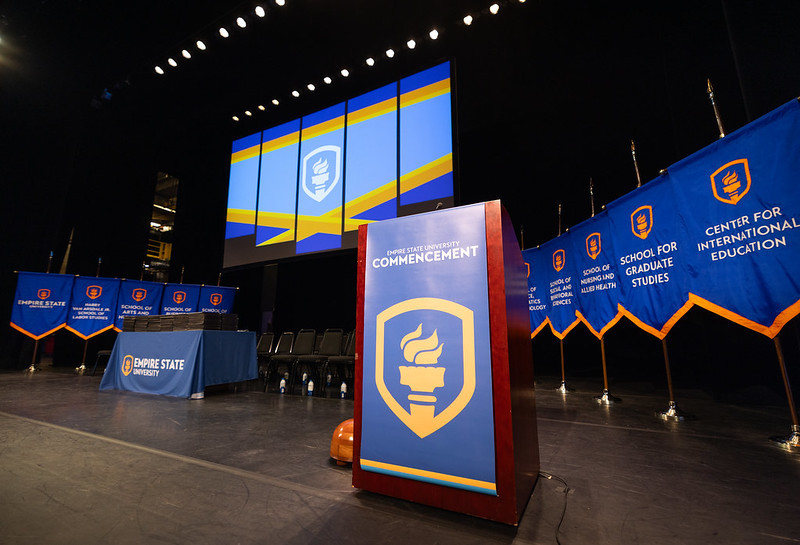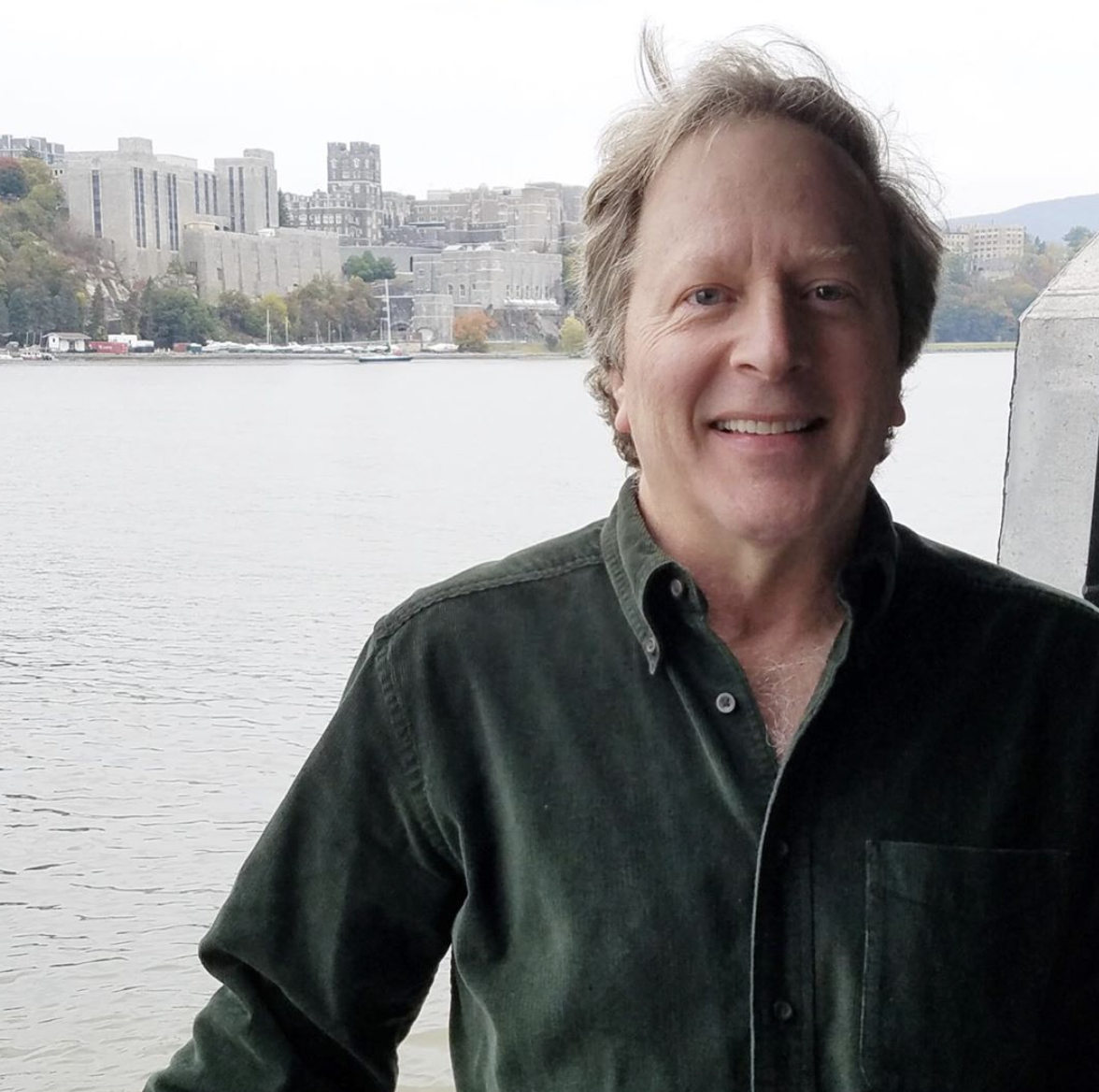Celebrating the Growth, Purpose, and Promise of Our Graduates
The stage of New York City’s famed City Center was bathed in a vibrant glow. As a member of the faculty, I sat among my colleagues behind the speaker’s podium, sharing in the infectious exhilaration of the graduating students. We applauded, thrilled for them, as they streamed in from the lobby, energized by joyful pride in their momentous accomplishments.
exhilaration of the graduating students. We applauded, thrilled for them, as they streamed in from the lobby, energized by joyful pride in their momentous accomplishments.
The majestic theater, with its plush red velvet seats and resplendently hued geometric Neo-Moorish motifs, radiated ceremonial formality as the students entered. The dramatic strains of Pomp and Circumstance filled the room, caps and gowns infused the setting with an aura of tradition, and a dignified hush complemented broad smiles.
This was the 2025 graduation ceremony of SUNY Empire State University.
Earlier, my colleagues and I, along with our university administrators and staff, gathered in the robing room. It was a wonderful opportunity to catch up. As we exchanged warm greetings, we helped one another adjust caps, and especially our hoods which I notoriously mangle each year. Rather than draping gracefully over my shoulders, my fumbling invariably leaves it with the appearance of a rumpled scarf. Typically, a good-natured colleague will take note of my helplessness and perform delicate reconstructive surgery, sparing me the fate of sartorial shame.
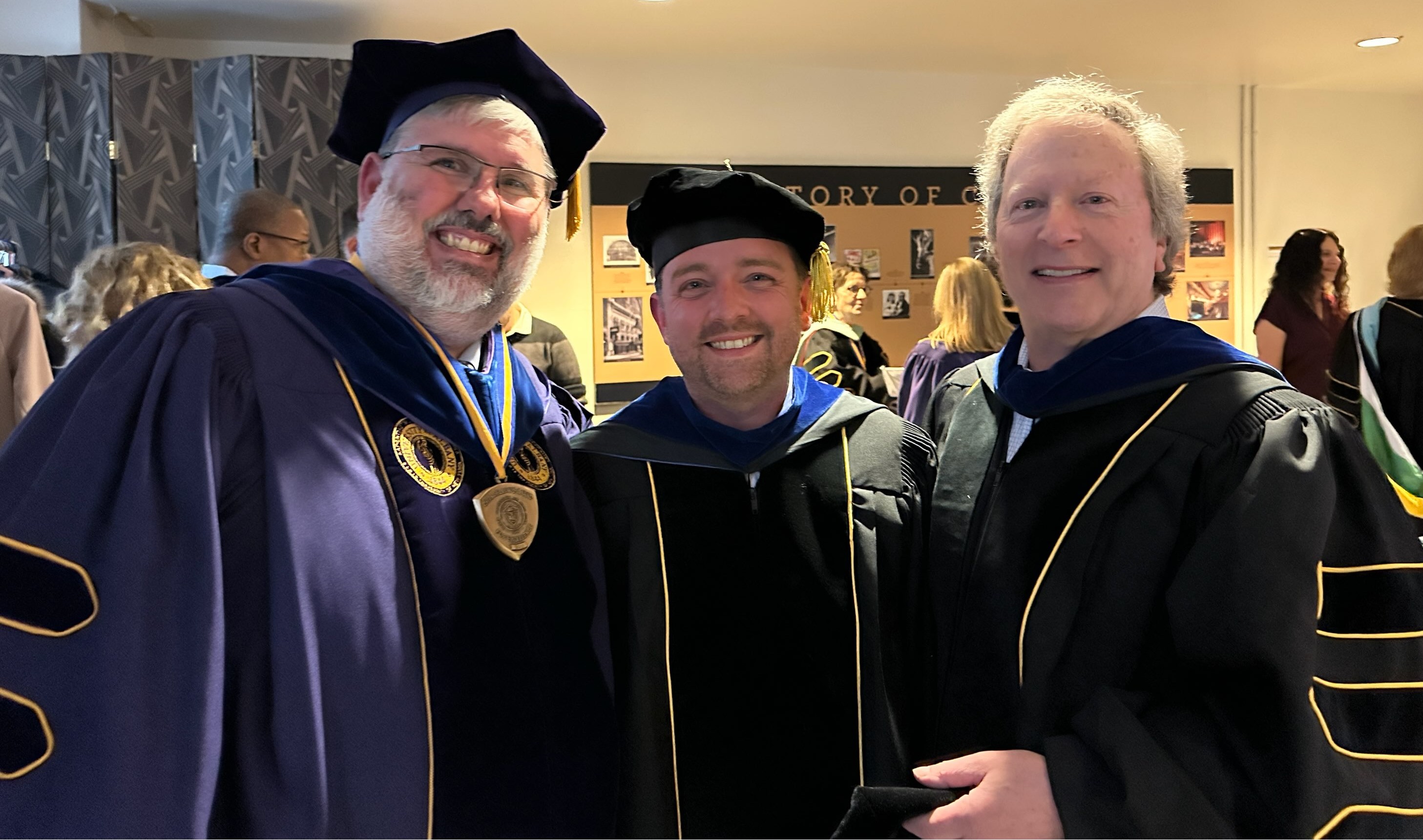
As the moments drew close to the start of the ceremony, the chatter and laughter in the robing room softened, giving way to reverent serenity as we fell into line, stood a little taller, and set off for the theater. Down a couple flights we went, then ambled through circuitous backstage hallways, passing storage areas filled with the theater’s lighting and sound equipment, toward the lobby where our processional to the stage would begin.
As we entered the theater, we first saw the stage, boldly adorned with Empire State University banners. Though the orange and blue insignia were so familiar, the time-honored pageantry bestowed upon the moment an awe-inspiring grandeur.
Once we settled into our places on the stage, the students began their commencement march into the grand theater. For many, this was a once-in-a-lifetime experience. Some were teary-eyed, some were beaming, some seemed consciously reserved, but all faces registered the significance of the day.
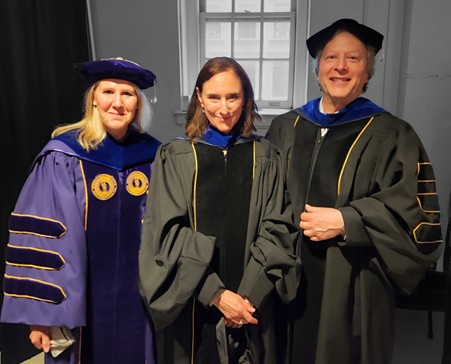
As each student enthusiastically ascended the few steps onto the stage to accept their diploma, my thoughts drifted to the students in my program, the MBA in Healthcare Leadership. All are accomplished professionals, deeply committed to advancing the public good and the wellbeing of patients, whether by enhancing quality care, expanding access to the underserved, or making a hospital experience more comfortable and manageable.
Integrating a rigorous graduate program into one’s life that’s already packed with responsibility is certainly challenging. Most students juggle full-time jobs, and in a high-pressure industry no less, with family-life that often includes caretaking – and in some cases, not just children, but elderly parents as well – managing financial obligations, and giving to their communities.
But they did it, each carving out precious time in evenings and on weekends to prepare assignments, conduct research, and engage in extensive reading. Despite the students’ different roles in healthcare – hospital executives, physicians and nurses, and managers from all corners of the healthcare sector – they have a common purpose: to demystify and improve the complex and all too often intimidating world of healthcare for those it serves.
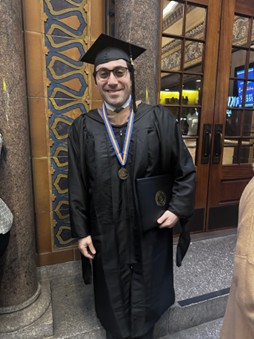
Among the day’s graduates from the MBA in Healthcare Leadership was Steven, who works in a premier NYC-based hospital system. When asked about what the day meant to him, Steven told me: “The decision to return to school after almost 10 years was not easy but graduating helped solidify that this was one of the best decisions I could have made for myself. Graduating and being able to receive my diploma gave me a sense of confidence in myself and knowing that I will be able to continue to grow in my career and future. Having my family and professors from my program there with me, added to the meaning of what this accomplishment meant for me.”
Our students conclude the MBA in Healthcare Leadership by developing strategic plans for their organizations. Steven’s project was designed to improve efficiencies so that patients need not stay in the hospital longer than necessary. It is not just about satisfying patients’ desires to return to the comfort of their homes. Research shows that many patients actually recover more smoothly when the discharge is not needlessly prolonged. Though it may sound easy, Steven’s project is quite complex, requiring several departments to re-engineer a host of interconnected work processes.
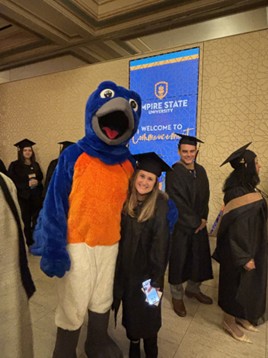
Josephine, another graduate from our program, is a perinatal ultrasound technologist who works in the largest healthcare system in New York State. Her facility serves a predominantly marginalized community, characterized by low health literacy rates and higher than average risk of complications during pregnancy. Josephine’s capstone project involved developing the perinatal care program into a full obstetrical care center and broadening access to communities that traditionally face barriers to good quality care. In so doing, surveillance for high-risk pregnancies would be expanded and post-partum care services would extend from just a few months to a full year.
When asked to describe her experience in the program, Josephine shared, “My MBA in Healthcare Leadership helped me see the bigger picture of how healthcare works — and where I can make a real impact. It gave me the confidence to step beyond the clinical role I’ve held for years and step into leadership. I’m especially excited to use what I’ve learned to advocate for women’s health and build more equitable, patient-centered systems.”
There is something richly poignant about this hallowed tradition taking place at City Center. Perhaps it is embedded in the seeming mutual exclusivity of the names we apply to it – whereas graduation implies an ending, commencement signals a beginning. But here, in this setting, any contradiction evaporates. Closure and emergence interweave, this ceremony transcending both and catalyzing their unification. Here, we honor achievement while embracing hopeful anticipation.
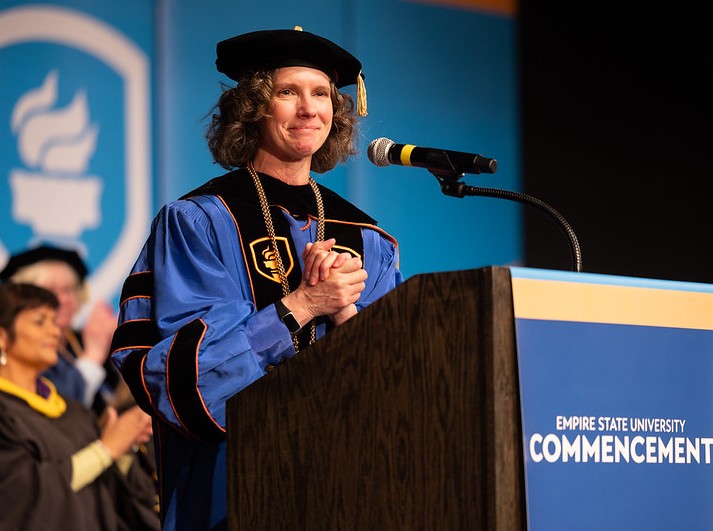
Our students’ time at Empire State University provided invaluable learning and growth experiences that now guide their futures. And no matter the uncertainties that may lie ahead, those futures have been made more promising by the achievement of earning their degrees. It was this very theme—inspiring and grounding—that was at the heart of the address stirringly delivered by our university president, Dr. Lisa Vollendorf.
In the quiet aftermath of the celebration, with the spotlights dimmed, caps in hand and gowns draped over an arm, and families posing for one more photo with their honoree, reflections turn to what is most meaningful about the event, the foundational reason we come together to acknowledge and pay tribute to the academic accomplishments of our extraordinary students.
It is this:
The relief a family feels when their nine-year-old daughter can go home five days following spinal fusion surgery rather than the needless and potentially debilitating eight days, thanks to the dedication of Steven and his team.
The comfort a family feels knowing their pregnant loved one, at risk of miscarrying her baby, is in the eminently capable and compassionate hands of Josephine and her colleagues.
When we search for the deeper meaning of the graduation, we discover it may not be that deep. It’s rather simple, really. It is that the world is a better place with Steven and Josephine in it, working with quiet but vigorous determination to make life better for countless others, people who may never know of their efforts.
It is their selfless resolve that crystallizes our sense of purpose. For all of us who work at the university, the opportunity to place a few steppingstones along our students’ path to self-actualization is a truly humbling privilege.
